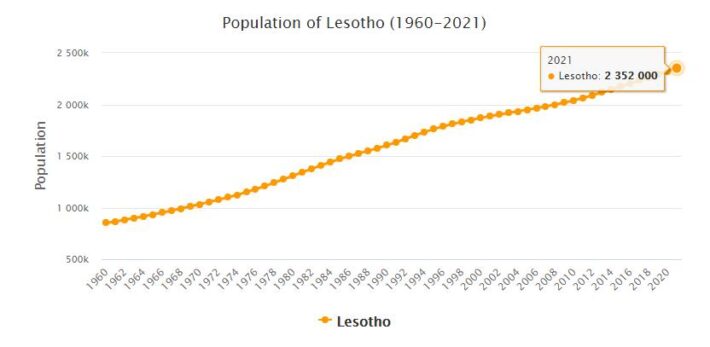Yearbook 2012
Lesotho. Prime Minister Pakalitha Mosisili resigned in February as leader of the Lesotho Congress for Democracy (LCD), which was shaken for a time by severe contradictions. The veteran politician formed a new party, the Democratic Congress (DC), and could remain with the support of 45 MPs.
At the May 26 election, DC became the largest party with 48 of Parliament’s 120 seats, far from the necessary majority. Mosisili resigned after 14 years as head of government. Tom Thabane from the opposition party Allbasothian Convention (ABC) formed an alliance with four parties, including LCD, a party he himself had resigned from in 2006. In June, King Letsie III appointed Thabane as prime minister. Thabane is also responsible for the defense and the police.
- AbbreviationFinder.org: Provides most commonly used acronyms and abbreviations for Lesotho. Also includes location map, major cities, and country overview.
Election observers from the African Union (AU) characterized the election as free and fair.
Another year with bad harvests, among others. the staple corn maize contributed to the country’s disaster authority and the United Nations Food Agency WFP in November appealing to aid donors for food aid.
Eight men from Mozambique and South Africa were sentenced to 15 years in prison for participating in the 2009 assassination attempt at the then Prime Minister Mosisili. The referee said they appeared to have been tiles in a game. Murder charges were written off.
Population 2012
According to countryaah, the population of Lesotho in 2012 was 2,058,910, ranking number 148 in the world. The population growth rate was 0.630% yearly, and the population density was 67.8202 people per km2.
Demography and economic geography. – Internal state of southern Africa. The population (2,097,511 residents, According to an estimate by UNDESA, United Nations Department of Economic and Social Affairs, in 2014), which grew by 0.84% (2005-10) and 1.1% (2010 -15) with a life expectancy at birth of 49.4 years (2013), is among the most affected in the world by AIDS / HIV (Acquired Immune Deficiency Syndrome / Human Immunodeficiency Virus), with 360,000 infected people, almost 23% of the population over 15 years of age. The urban population (27%) is concentrated mainly in the North-West in the main cities, including the capital Maseru (267,000 residents, 2014 estimate). The literacy rate is 79%. GDP, which has grown by 6-7% in recent years, is based on foreign remittances, especially from workers in South Africa (26% of GDP), on diamonds and, recently, on construction in the public sector. With GDP per capita at purchasing power parity (PPP) of $ 2,925 and ranking 162 in the Human Development Index, poverty, food insecurity, inequality and unemployment persist.
History. – The relative political stability conquered by Lesotho at the end of the nineties was put in crisis during the following decade by the contrasts that arose within the same government structure, led since 1998 by Bethuel Pakalitha Mosisili, leader of the Lesotho Congress for democracy (LCD). A first break occurred in 2006 when Communications Minister Tom Thabane resigned and, after leaving the party, he formed a new one called All Basotho Convention (ABC). In 2012 Mosisili also left the LCD and formed the Democratic Congress (DC). In the subsequent parliamentary elections (May), the DC won the largest number of seats, but failed to obtain an absolute majority. Unable to form a ruling coalition, Mosisili resigned and was succeeded by Thabane, who formed a coalition executive with the LCD. In 2014, disagreements with government allies led Thabane to suspend Parliament and relieve the army chief, Lieutenant General Kennedy Tlali Kamoli. He refused to resign and led a military uprising (August). Thabane fled to South Africa and sought the mediation of the leaders of the Southern African development community (SADC), whose negotiations led to an agreement. Thabarne returned home (Sept.) and in October the Parliament was reconvened; it was decided to hold early elections and Kamoli agreed to be discharged. The vote for the renewal of Parliament (February 2015) saw a substantial tie between DC (47 seats) and ABC (46 seats).
